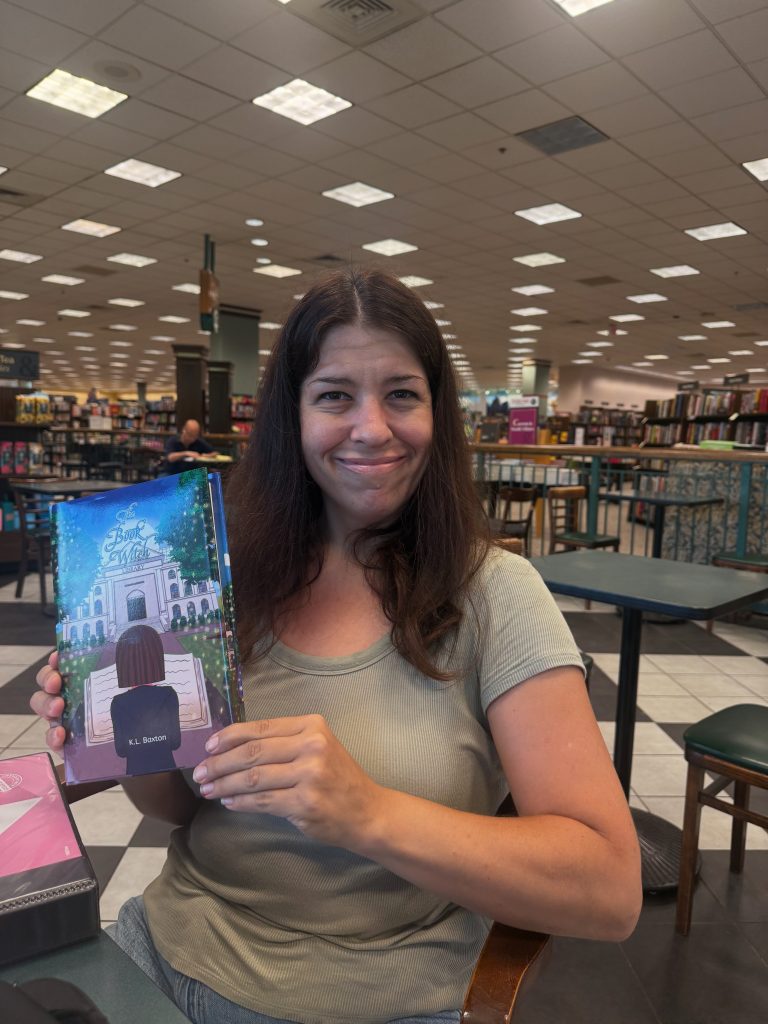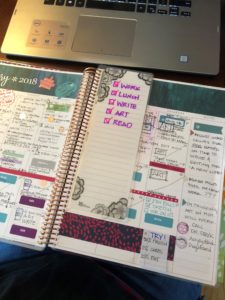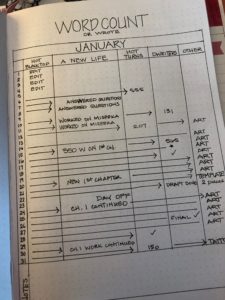At the meeting were six attendees: Tim, Kook-Wha, Jon, Claire, K.L., and John. We did feedback rounds for two submissions.
Jon’s piece was the setting for a story about climbing a mountain in the North-East of the US. It was a foreshadowing of a more difficult climb of the same mountain a year later. We explored the balance of details and context with setting the scene for the dangerous and dramatic climb up and the return.
The second piece was by John. It was an opening to a story about hunting vampires. The group talked about how word choice helped to elevate a sense of tension and horror. There were areas to improve, which the group provided helpful details.
The author, K.L. Baxton shared a copy of her physical book, The Book Witch, that recently launched on Amazon. The reviews are positive for this engaging book. She is working on social media marketing to improve its reach.

The Book Witch by K.L. Baxton
Lastly, the group began conversations about the focus of the next anthology. There was consensus to identify one to two themes to incorporate as the focus of our next anthology. Lots of ideas were shared. We are hoping to decide by the end of our meeting in the third week of August. Check in then 🙂




